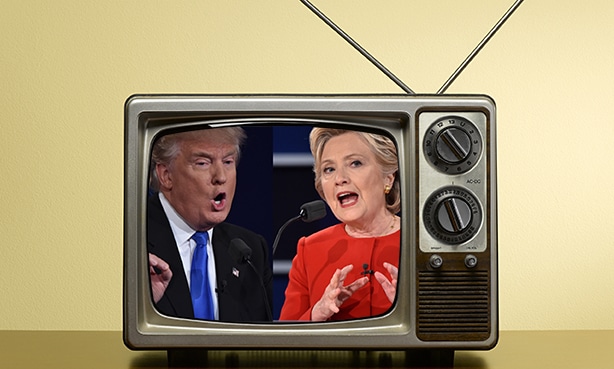The lawlessness of political advertising
Every election year, I am re-amazed by one of the more amazing things I learned in my advertising life.
That is, there is one set of rules for consumer ads and no set of rules for political ads.
Want to run a TV ad for your toilet cleanser? It will have to be cleared by the network’s “ethics and standards” group. No false or misleading claims allowed about your product or your competitor’s.
Want to run a TV commercial for your political candidate? No lawmen here, so have at it. Lies, half-truths and conspiracy theories are welcome.
While the networks act as a watchdog for consumer advertising, the Federal Trade Commission actually brings action against violators. They have a nice little set of punishments, including cease-and-desist orders, fines, frozen assets and compensation for those affected by fraud.
On their website, the FTC says,“The FTC looks especially closely at advertising claims that can affect consumers’ health or their pocketbooks.”
Hmm. It’s not like a presidential candidate can affect our health or pocketbook, right?
So, naively, I have to ask: why in the world should a candidate for president not be required to be at least as honest as the maker of toilet cleanser? Especially when he or she may have the power to change the course of history?
If there ever was a time when smarter laws weren’t critical, that time has long passed. Today, the distinction between fantasy and reality is blurred by the combination of bitter partisan politics, fake news and the power of the internet.
It’s a disgrace that candidates for public office, whose duty it is to serve the people, are allowed to mislead the people.
Okay, I had to get that off my chest. But trust me, I’m enough of a realist to understand that the regulations governing political advertising will likely never change.
It is for this very reason that I retreat into my fantasy world, where I have just been named Benevolent Dictator of the US. During my first day in office, I promise to sign two simple executive orders re: the marketing of political candidates.
• No ads containing false or misleading claims allowed, period. Large fines for every violation.
• All candidates are now legally responsible for every promise — in ads, interviews or campaign speeches. If elected, broken and/or unfulfilled promises will be treated as crimes.
The second is arguably more important than the first, because promises aren’t lies — but they’re every bit as despicable if a candidate has no intention of delivering. The prospect of a prison term would be excellent motivation for candidates to think long and hard about what they promise.
For the record, this rant isn’t inspired only by Donald Trump. Every candidate engages in some degree of distortion. Lies and half-truths have become part of the campaigns for virtually every office in the land.
Personally, I’m ready to put our recent election behind us and move on. However, that doesn’t mean we can’t make elections more fair in the future, and make it easier for people to make an intelligent choice.
Doing so would be an extraordinary gift to the next generation — and to the very idea of democracy itself.

